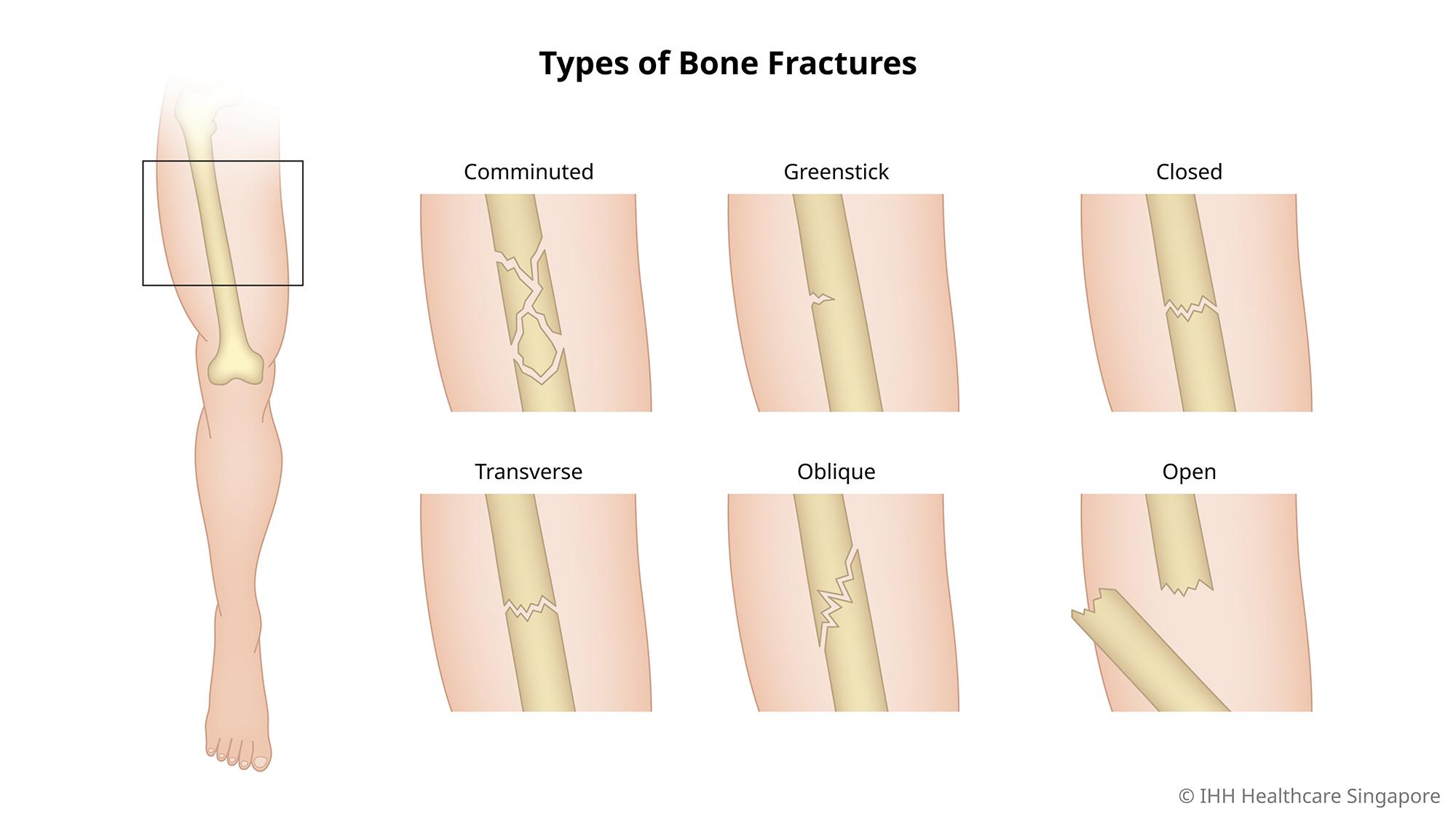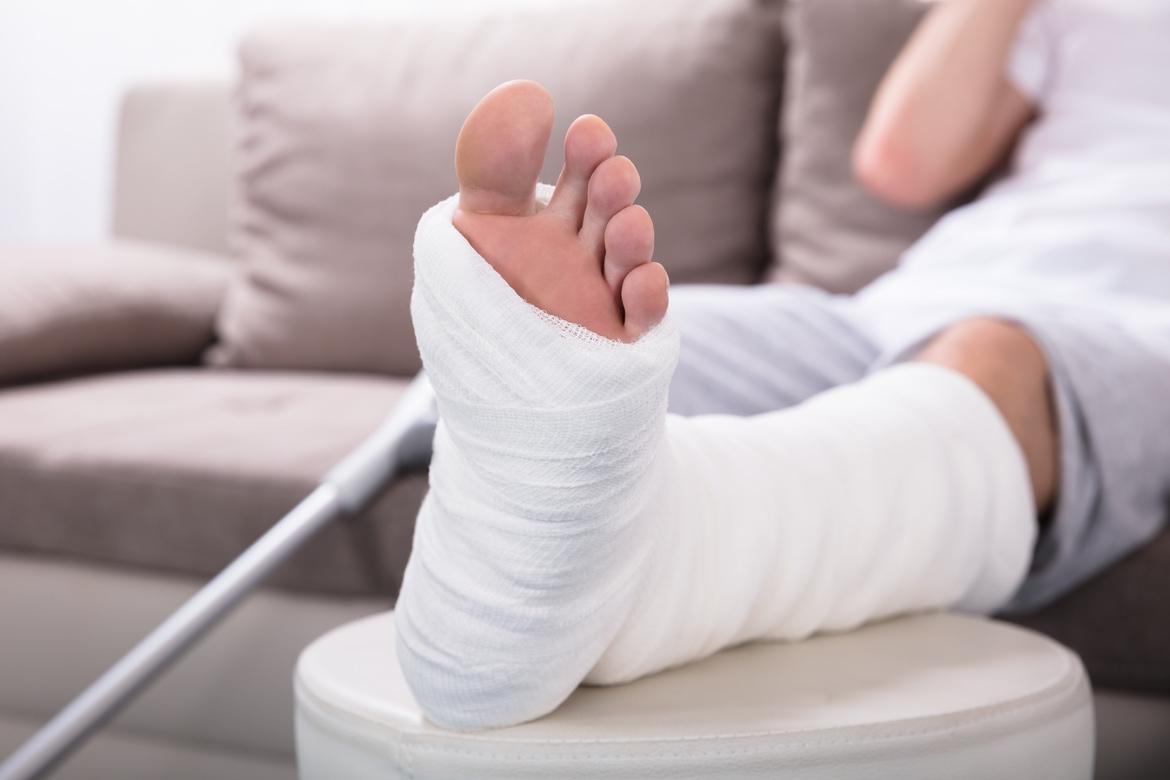Fractures
What is a fracture?
A fracture refers to a cracked or broken bone. While bones are able to withstand pressure or impact to some extent, they will break if the force is too great to bear.
This means that any bone in the body can break. A fracture is usually, but not always, the result of an injury and may be partial or complete.
Types of fractures
There are many different types of fractures:
- Comminuted fracture, where the bone is shattered into several pieces.
- Greenstick fracture, which is a partial fracture where the bone is not completely broken. It is more common among children as their bones are softer and more elastic.
- Hairline fracture, a partial fracture which is hard to detect in routine X-rays.
- Oblique fracture, which occurs when the bone has a diagonal or angled break.
- Pathological fracture, in which an underlying condition has caused the bone to weaken, making it more likely to break.
- Stress fracture, which is more common in athletes or those who frequently endure repeated stresses and strains on the bones.
- Transverse fracture, which is a straight break right across the bone.
Fractures can also be broadly categorised into closed and open. In closed fractures, the cracked or broken bone does not damage the surrounding tissue or protrude through the skin. In open or compound fractures, the cracked or broken bone breaks through the skin.
What are the symptoms of fractures?
As there are many kinds of fractures, symptoms of a fracture may vary.
For example, open fractures often present visible damage. In contrast, closed fractures may present symptoms such as deformities or discoloured skin in the injured area.
Other possible symptoms include:
- Pain, swelling and bruising
- A grating sensation when attempting to move
- An inability to move the affected area
Serious injuries involving a large bone such as the pelvis or femur may also cause a person to look pale and clammy, feel dizzy or faint and have an overall sensation of being sick or nauseated.
What causes fractures?
A fracture occurs when the physical force you exert on the bone is stronger than the bone itself. Broken bones are most common in childhood, although you can fracture a bone at any age.
As older people have more brittle bones (due to osteoporosis), they are more likely than younger people to fracture a bone in a fall.
What are the complications and related diseases of fractures?
Complications from fractures or broken bones may include:
- Blood loss, as bones have a rich supply of blood
- Injuries to surrounding organs, tissues or surrounding structures. For example, a skull fracture may damage the brain, or a broken rib may pierce the lungs.
- Poor alignment of limbs if the bones do not heal properly
- Stunted bone growth
- Infection











